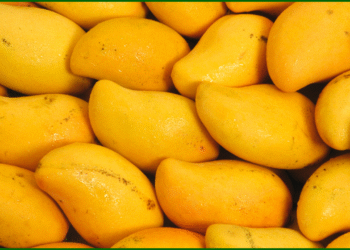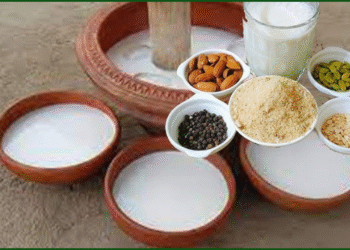As mental health awareness continues to grow in Pakistan and across the globe, experts are increasingly emphasizing the role of nutrition in supporting cognitive function, mood stability, and overall mental well-being. The foods we consume can significantly impact brain health, helping to reduce stress, improve focus, and even combat symptoms of anxiety and depression. Drawing from the latest research and nutritional insights, here are the top 5 foods that can strengthen your mental health, making them must-haves in your daily diet as of March 2025.
1. Fatty Fish (Salmon, Mackerel, Sardines)
Fatty fish like salmon, mackerel, and sardines are powerhouse foods for mental health, thanks to their high levels of omega-3 fatty acids. Omega-3s, particularly DHA and EPA, are essential for brain function and have been linked to reduced symptoms of depression and anxiety. A 2024 study published in the Journal of Nutritional Biochemistry found that individuals who consumed omega-3-rich fish at least twice a week showed a 20% lower risk of depressive symptoms. In Pakistan, sardines (locally known as “machli”) are widely available and affordable, making them an excellent addition to meals like fish curry or grilled dishes.
How to Include: Add grilled sardines to your weekly menu, or try a salmon salad if you’re in a city like Karachi or Lahore where imported fish is more accessible. Aim for 2–3 servings per week.
2. Berries (Blueberries, Strawberries, Blackberries)
Berries are packed with antioxidants, particularly flavonoids, which help reduce inflammation and oxidative stress in the brain—key factors in mental health disorders. Blueberries, often dubbed “brain berries,” have been shown to improve memory and delay cognitive decline. A 2023 study from the American Journal of Clinical Nutrition highlighted that regular berry consumption could enhance mood and cognitive performance in adults. In Pakistan, strawberries are widely available during the winter months, and frozen blueberries can be found in larger supermarkets.
How to Include: Add a handful of strawberries to your morning yogurt or blend them into a smoothie. Frozen berries are a great option for year-round access and can be used in desserts or snacks.
3. Nuts and Seeds (Walnuts, Almonds, Chia Seeds)
Nuts and seeds are rich in healthy fats, vitamin E, and magnesium, all of which support brain health. Walnuts, in particular, are a standout due to their high DHA content (a type of omega-3), which promotes brain cell communication. A 2024 meta-analysis in Nutrients found that regular consumption of nuts, especially walnuts, was associated with a 15% reduction in anxiety symptoms. In Pakistan, almonds (badaam) and walnuts (akhrot) are popular and easily available at local markets like Sunday bazaars in Islamabad or Lahore’s Anarkali Bazaar.
How to Include: Snack on a handful of mixed nuts daily, or sprinkle chia seeds on your oatmeal or salads for an extra mental health boost.
4. Leafy Greens (Spinach, Kale, Fenugreek)
Leafy greens like spinach (palak), kale, and fenugreek (methi) are loaded with folate, a B-vitamin essential for producing serotonin and dopamine—neurotransmitters that regulate mood. Low folate levels have been linked to higher rates of depression, according to a 2024 study in the British Journal of Psychiatry. These greens are also rich in magnesium, which helps reduce stress by calming the nervous system. In Pakistan, spinach and fenugreek are staples in many households, often used in dishes like saag or methi paratha.
How to Include: Cook a traditional palak paneer for dinner, or add fresh spinach to your smoothies. Kale, though less common, can be found in upscale grocery stores in cities like Karachi and is great in salads.
5. Whole Grains (Oats, Quinoa, Brown Rice)
Whole grains provide a steady supply of glucose to the brain, ensuring sustained energy and focus throughout the day. They’re also rich in B-vitamins, which support the nervous system and help reduce stress. Oats, for instance, contain tryptophan, an amino acid that boosts serotonin production, promoting relaxation and happiness. A 2025 report by the World Health Organization emphasized the role of whole grains in improving cognitive function and reducing the risk of mental health disorders. In Pakistan, oats are widely available, and brown rice is gaining popularity as a healthier alternative to white rice.
How to Include: Start your day with a bowl of oatmeal topped with berries and nuts, or swap white rice for brown rice in your biryani or pulao for a mental health-friendly twist.
Why Nutrition Matters for Mental Health
The connection between diet and mental health, often referred to as the “gut-brain axis,” has gained significant attention in recent years. The gut microbiome, which is influenced by what we eat, plays a crucial role in producing neurotransmitters like serotonin—90% of which is made in the gut. A 2024 study from the University of Oxford found that diets rich in whole foods, such as those listed above, were associated with a 25% lower risk of anxiety and depression compared to diets high in processed foods. In Pakistan, where mental health stigma is still a challenge, incorporating these foods into daily meals can be a practical and empowering step toward better well-being.
Tips for a Mental Health-Boosting Diet
- Eat Regularly: Skipping meals can lead to blood sugar dips, which may cause irritability and fatigue. Aim for 3 balanced meals a day.
- Stay Hydrated: Dehydration can impair focus and mood. Drink at least 8 glasses of water daily, especially in Pakistan’s hot climate.
- Limit Processed Foods: High-sugar and high-fat processed foods can increase inflammation, negatively impacting mental health. Opt for whole, natural foods instead.
- Consult a Nutritionist: If you’re unsure where to start, a local nutritionist in cities like Islamabad or Lahore can help tailor a diet plan to your needs.
Final Thoughts
Incorporating these five foods into your diet can have a profound impact on your mental health, helping you feel more focused, calm, and resilient. In a country like Pakistan, where traditional diets already include nutrient-rich foods like spinach and whole grains, making small adjustments can go a long way. As we navigate the challenges of modern life in 2025, prioritizing mental health through nutrition is a simple yet powerful step toward a happier, healthier you.
For more tips on mental health and well-being, follow Today Pakistan News for the latest updates on health, lifestyle, and more.


















































